Program
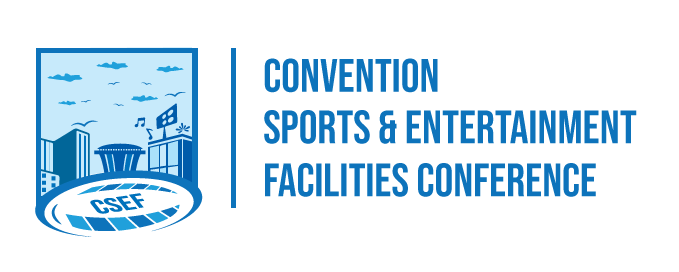

Many communities are considering or implementing the development of entertainment and tourism infrastructure including convention centers, hotels, sports facilities and entertainment venues to stimulate their local economy and compete with neighboring destinations.
While some of these projects involve the public working independently, many are now delivered through innovative economic development partnerships between the public and private sector. These partnerships are creating new opportunities for inventive approaches to financing, developing, and maintaining major entertainment and tourism projects around the country.
Through a series of keynotes, panels, and diverse networking opportunities, the 2025 CSEF agenda will set out to answer complex issues surrounding the development and delivery of entertainment and tourism infrastructure in the U.S.
Our agenda is designed for attendees to deepen their understanding on the value proposition behind alternative project delivery models involving partnerships, and the role they can play in the delivery of convention, sports, and entertainment facilities. Attendees will learn how to plan and procure successful project initiatives, understand best practices in selecting and negotiating with prospective partners, and steps to take to ensure deal success.
Leading practitioners will present their firsthand observations of a variety of public facility projects of all sizes in different markets from around the country. We will also offer in-depth roundtable discussions for owner and public sector delegates with interest in discussing specific project issues in a more candid and interactive forum.
Attendees with little experience in the development and operation of partnerships and alternative delivery models will benefit from our industry experts presenting their knowledge, and valuable insights into market trends crucial for business decisions. More seasoned professionals will benefit from our incredible networking opportunities, cultivate relationships with project sponsors, and learn new methods to address complex project delivery goals.
The following facility types will be discussed including but not limited to:
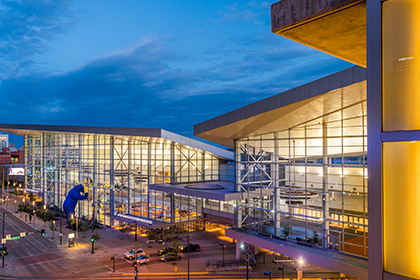
Convention Centers
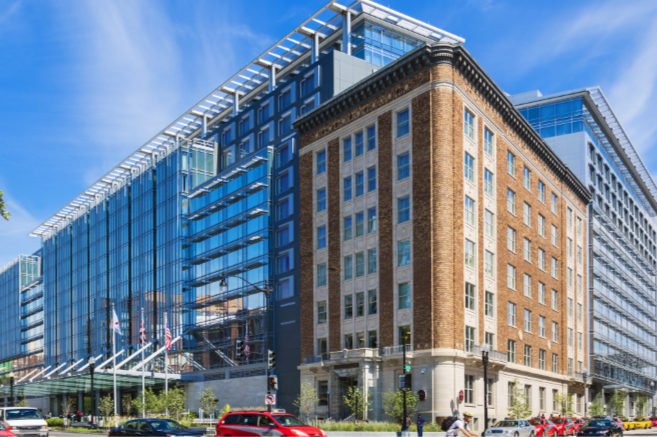
Headquarters Hotels
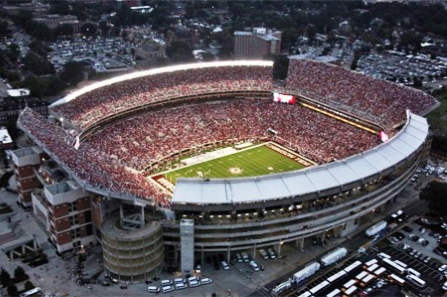
Stadiums & Arenas
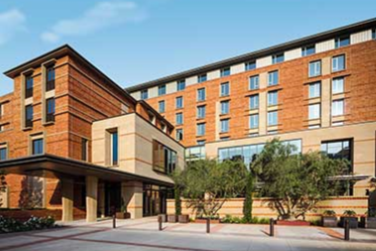
Local Economic
Development
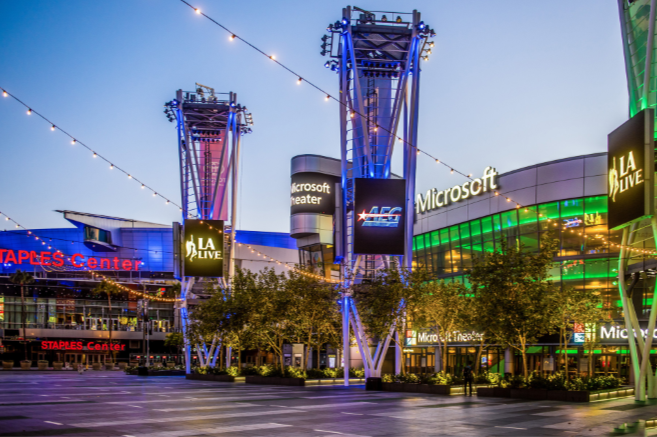
Entertainment and
Tourism Infrastructure
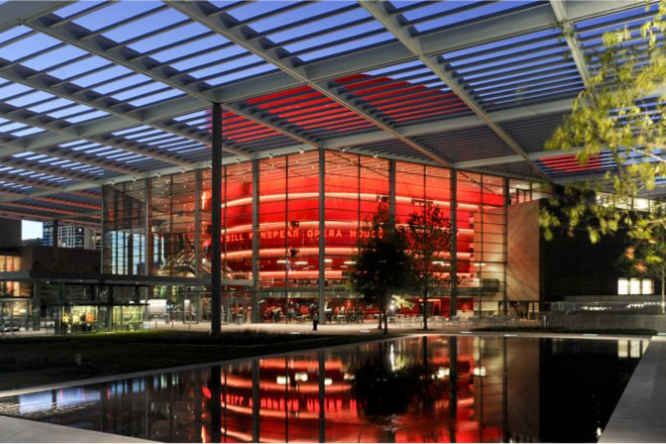
Performing Arts
Venues
CONFERENCE PROGRAM
Communities across the country have seen much recent success in developing partnerships to deliver convention centers, sports venues, and entertainment facilities to stimulate their local economies and improve the quality of life for their community.
Our 2024 agenda will feature a broad range of topics specifically tailored to the needs of governments and public agencies evaluating the development of public facilities. Our program will span the entire lifetime of a project from the early planning stages through financing, development, and operations.
Senior thought leaders will participate in a variety of panel and roundtable discussions focused on how to build partnerships; how to source financing; how to work with design-build teams and how to build public support for a project.
The agenda will also share examples of where alternative project delivery approaches can be applicable; and how they can save money and time when dealing with facility upgrades, expansions, new development, and ongoing maintenance.
The agenda will highlight what types of delivery structures do or do not make sense, and what major considerations need to be made once choosing your preferred delivery route. The agenda will also offer numerous case studies (big, medium and small examples of successful and unsuccessful projects) of how alternative delivery and partnerships can be formed for public facilities of all types.
The agenda will host multiple daily networking breaks designed for you to meet with industry professionals, project sponsors/owners, and a chance to reconnect with old colleagues.
With over 600+ participating delegates, attendees will find the Convention, Sports & Entertainment Facility Conference to be one of the most effective places on their event schedule to cultivate relationships and network with the industry’s most active and influential professionals.
NETWORKING
Our audience of facility managers, administrators, construction, architecture, and design professionals provides a unique opportunity to network with design-build experts, project owners, and prospective partners in a development focused forum.
The conference provides two days of networking functions: including receptions, round table sessions, meals, 1 on 1’s areas, and specific industry events designed for you to connect with speakers, facility representatives, project owners, industry peers, A/E/C professionals, and prospective partners.
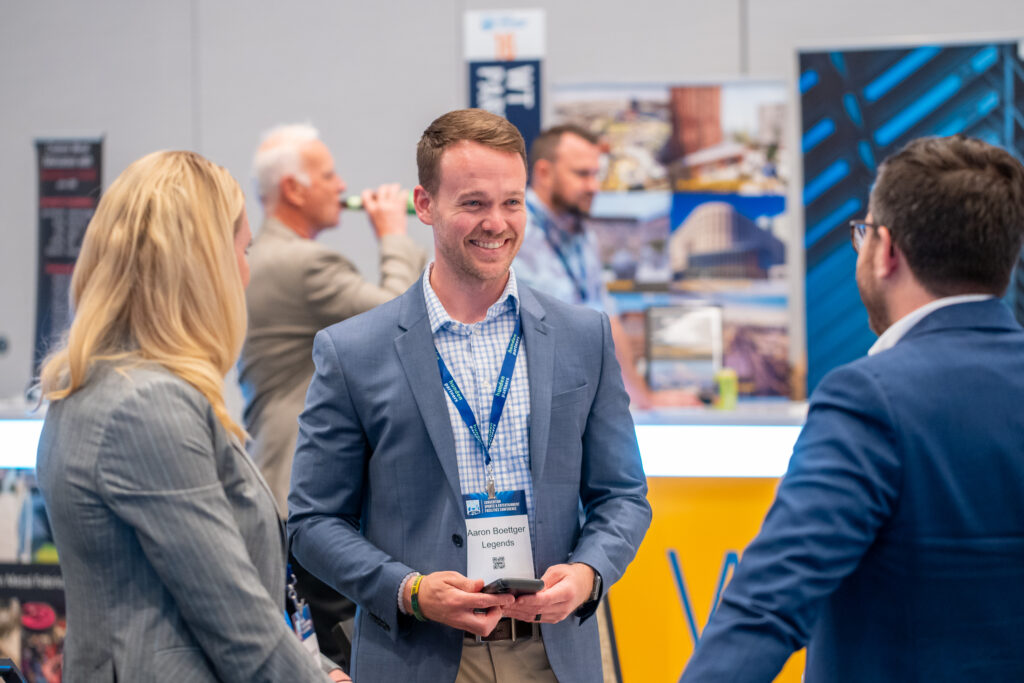
EXHIBITION HALL
Conference delegates will be able to interact with industry leaders in a relaxed social setting as well as meet with some of our presenters, sponsors, and event partners.
The exhibition hall is one of our central meeting points for all attendees during the event. Attendees are encouraged to setup one-on-one, pre-scheduled, or private appointments with participants.
If your business or public agency is interested in hosting a table, please email Brynja Bogan for additional details.
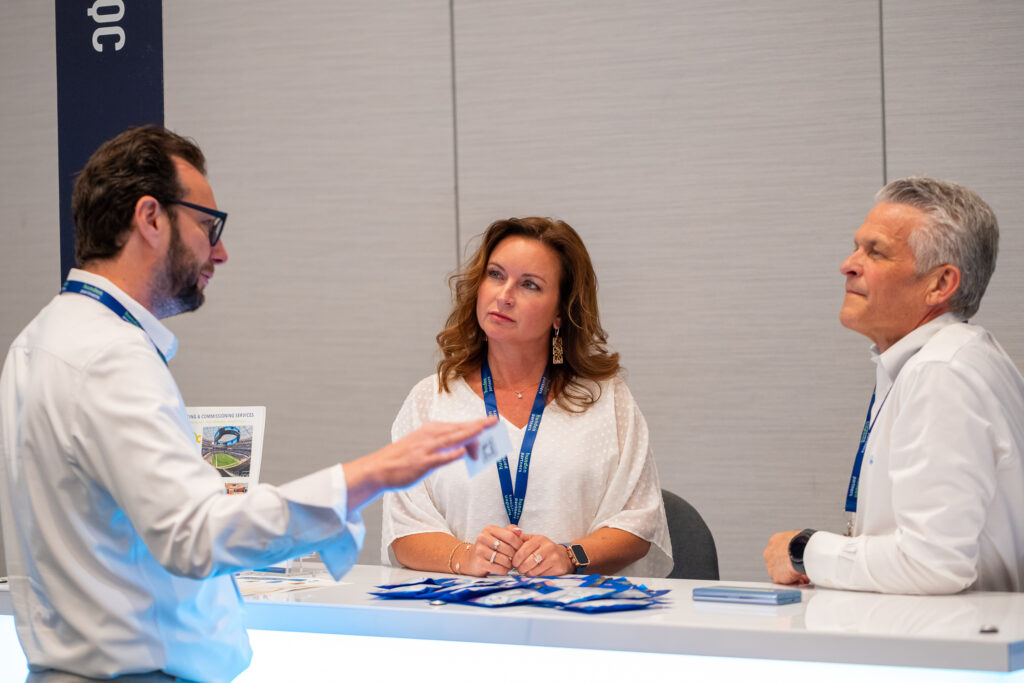
DISCUSSION THEMES
State of the Market: Venue Enterprise, Development, Operations and Maintenance
In this cross-sector panel, we look at the various challenges faced with new and existing venues from a revenue generation, user experience, demand and obsolescence perspective as a market. From managing a capital improvement program, leveraging revenue opportunities around advertising and naming rights to technology retrofits and negotiating new operating agreements. Representatives from asset management, development, technology and market economics fields will join forces to debate the common issues and potential solutions faced by venues across the United States.
Repositioning Brownfield Convention Centers
The U.S. is at the edge of a number of convention centers around the country maturing past their economic and physical lifespan – and so, what’s next? Different approaches are being deployed nationally and internationally within the segment from pure revenue deals, to full public-private partnership DBFM concessions. Hear from industry experts about how different approaches are being leveraged to deliver fast-track, streamlined projects that are fine-tuned to the convention center and public sector needs while enhancing long-term asset performance.
Game On! The Evolution of Sports Tourism & Facility Development
All throughout the US, municipalities large and small either already have or are beginning to investigate the merits of their community developing a sports facility in an effort to capture some of the sports tourism demand nationally. This panel will discuss the history of this industry, the growth in facility development, best practices and case studies as well as unique funding strategies that have been implemented. These sports facilities serve as not only a new asset to the community and its local residents but also as a catalyst to increase visitation and spending in the community through weekend tournament programming. There have been several unique funding tools utilized to bring these types of projects to fruition from Public/Private Partnerships to TIF’s, TDZ’s, HOT, and Destination Fees. Come listen to the industry experts that consult at the very tip of the development spear and learn how these projects are carefully vetted from idea to opening!
What Is Your Flavor of Procurement? D-B-B/DD/DBF/DBM/DBFM/DBFOM
This session will examine the different procurement processes, including all possibilities for P3s. We will explain the differences between the structures and how they can work best for specific projects or to meet the specific goals of an agency, delving into how each structure impacts the project viability, the return to the agency; and credit profiles and balance sheet. These procurement processes include Design-Bid-Build, Design-Build, Design-Build-Finance, Design-Build-Maintain, Design-Build-Finance-Maintain, and Design-Build-Finance-Operate-Maintain.
Convention Center Hotel Finance: What You Need to Know
Interest in municipal convention center and conference hotels continues to grow; however, financing a municipal hotel can be a challenging undertaking. In this presentation, panelists will discuss the various considerations that municipalities and developers should take into account before financing a municipal hotel, including ownership and governance structures, unique financing risks, dealing with franchisors and operators, borrowing covenants and relationships with bondholders.
Community Impact Investment around Sports, Convention and Entertainment Facilities: Becoming Good Neighbors and Community Assets
A panel discussion on achieving community impact investment through procurement, workforce and employment opportunities, community economic development, and concession management. How convention centers and stadiums can create equitable economic and minority business development.
Master Class: Starting from Step One – a Roadmap to a Successful Development
This session will cover it all: from the very first step to a totally completed project. Audience members will hear lessons learned from real-world examples of what worked and did not in projects across the U.S. and how you can direct your efforts in an efficient, effective way. Project types covered will be convention centers, hotels, sports facilities and entertainment districts, among others. You will learn about master feasibility and impact analysis, funding tools, political champions and how to structure an effective developer RFQ/P process. When you leave, you will be well-equipped to move through a successful process or get your efforts back on the right track! Join Rob Hunden of Hunden Strategic Partners to learn the key steps that lead to the right game-changing development, with the right partners and funded in a smart way. Mr. Hunden has worked on all sides of the process, for cities, as a consultant, and for developers. With 600 studies and projects completed over 25 years, including dozens of developer selection processes, Hunden will walk you through the key steps to take in your “if you build it, will they come” process, including pitfalls to avoid. Join us for a conversation that offers a solid foundation and framework for subsequent discussions in this year’s program.
Development of Local Destinations to Grow Convention Business
Mixed-use development and placemaking around convention centers enhances the overall travel experience for convention delegates. Where successful, it also creates destinations that visitors and residents alike want to experience. This discussion will examine the how convention venues and developers work together to create those attractive districts, and how destination marketing organizations use such places to expand their convention business. A panel of experts will discuss trends and case studies.
Seizing Upon Opportunity Zones and Creating Value
Join a discussion on the Opportunity Zones Program, created by the Tax Cuts and Jobs Act of 2017. This program has the ability to incentivize the investment of billions of dollars into infrastructure in the United States. Our panelists will answer key questions including: What is the impact on cost of funds? What does an opportunity zone project look like? How will it work within public-private partnership models, what are the benefits? and how can it impact the need to restore infrastructure for underserved communities?
Proven Strategies to Streamline Your Downtown Development Project
Our central cities have seen remarkable levels of investment and growth in recent years, and the prospects for future success remain strong. The amenities offered by the most competitive destinations are very attractive – the local restaurants, shopping, entertainment, nightlife and the elusive ‘urban vibe’ all combine to generate higher economic and fiscal returns for their communities. However, urban projects are inevitably more expensive to build – the density that makes these projects so successful in the long term can present major challenges in the planning, design and construction phase. This session focuses on tactics that owners can adopt to manage their risk by setting clear expectations and thinking strategically from the start.
Economic Opportunities for Arenas, Stadiums and Other Public Venues
The panel will explore the current opportunities and new trends for maximizing economic opportunities for arenas, stadiums and other public venues. It will explore the relationship between privatized operations and public ownership. The panel will discuss balancing the interests of community and public uses with the needs of private management to produce positive economic results. Revenue sources from naming rights, sponsorships, concessions, premium seating, ticketing and other revenue sources will be addressed. The panel will also explore new trends in public venue uses such as esports. The panel will consist of industry experts from the private sector who work collaboratively with municipal and other governmental venue ownership.
Structuring a Procurement to Get the Results You Need
The RFI/RFQ/RFP process are just some of the steps in achieving a successful procurement for convention, sports, and entertainment infrastructure. How can the public sector create a roadmap that gets them where they need to be and provides the information necessary to help make decisions that protect taxpayer investments? Mastering the procurement process is the secret to effective project delivery. Join us for a session that focuses on understanding the risks, capturing the vision, and establishing the right organization for a successful procurement.
Thinking Small – Delivering P3 Projects in Medium and Small Convention/Hotel Markets
Secondary and tertiary markets with medium and small size projects can equally benefit from the public private partnership model, but have they been left out of the P3 market? This session will include representatives from the public and private sector discussing their motivations in pursuing P3s in convention center and hotel development and describe a variety of approaches to such development including, tax incentives, various tax increment financing methods, co-development of convention center and hotel venues, using tax-exempt entities, development of related infrastructure lease-lease back arrangements. We’ll explore the tools and financing options available to project owners as they evaluate, plan and execute a successful project. Whether upgrading an existing facility, building a new facility or planning for anticipated growth, we’ll review recent project examples and success factors key to delivering winning projects.
Creating Districts- Wow That is Cool
Convention centers and sports facilities are promised to stimulate economic development. Some have, some have not and many have taken more than a generation to materialize or start the redevelopment process. This session explores why sports and convention center districts evolve and how the best districts have come to pass. Sometimes the reason is demographics, other times it is funding and other times it relates to strategy and effort. Several best practice strategies will be explored as will funding strategies used to make compelling and interesting districts evolve.
The Differences Between Project Funding vs. Project Financing
This session will introduce fundamental financial topics related to public-private partnerships We also review how public-private partnership financing models are evolving and how the role of the public sector changes under the different approaches. It will explore the factors that affect the rating and availability of private finance, contrasting projects with guaranteed off takers and projects taking risk on rate payers as well as looking at the impact of risk sharing between the public and private parties. Particular attention will be paid to the impact of choices in procurement model, agreement terms and rate controls on the private financing, the public sector and the customer.
Crossover Facilities: Hybrid Models for Smaller Markets (Track: Project Delivery Solutions)
Major markets typically need a convention center, an arena, and a performing arts center. Smaller markets may not be able to afford to build or to keep all these facilities open. This session explores some unique hybrid models for civic buildings that have helped smaller communities create both economic activity and quality of life for residents without breaking the bank. Learn from real-world examples where crossover facilities can work and how they can save substantial ongoing operating expenses.
Looking to the Future – The Role of Long-Term Cost Efficiencies in Alternative Project Delivery
While the benefit of obtaining private sector financing for sports and entertainment infrastructure draws much of the attention, the biggest advantages of alternative project delivery often derive from its focus on the long term (life cycle) needs and costs of the asset and the value of design and construction in maximizing those elements. Public private partnerships represent a natural evolution of Project Delivery Methods for projects beyond Design-Build to a method that includes the long term performance and maintenance of the asset in its planning and execution. This discussion will cover P3 as an evolution of Project Delivery Methods and explain how it is designed to shift long term risks and management of the asset to the parties best prepared to handle same.
Managing Design and Construction Risk in Modern Stadium and Arena Projects
One of the hallmarks of a successful project is the sharing of risk. Each side, public or private sector, would prefer to reduce their risk on a project, but there are serious cost impacts when the other sector absorbs more risk. Where can the balance be stricken and how can you be sure you have identified all the project risk categories for which transfer is an appropriate deal point? This session will discuss how participants can work together to establish expectations and strike a fair balance for risk transfer between them on a project. The panel will address how risk transfer in design and construction costs, state-of-the-art contract terms, insurance programs, and project financing can impact a value for money analysis. We will discuss risk allocation between the private and public sectors, as well as amongst the various members of the development team. Finally, once the appropriate risk categories have been identified, we will discuss the different vehicles available to implementing risk transfer.
Public and Private Roles, Interests and Incentives – Aligning to Avoid Collision
What mistakes should the public sector avoid when planning and executing a major sports or entertainment facility? What factors contribute to project success – or challenges? How can the public sector best engage with architects, builders and developers to get projects across the finish line, and what can they learn from sports and entertainment industry experts to avoid common pitfalls? What are the trends in how the public and private sectors are partnering on these landmark projects? Hear perspectives from the trenches and learn what can make or break your next sports or entertainment project.
How We Are Making Public-Private Partnerships Work for Us
There is a lot of noise in the industry about the definition of a public-private partnerships. Some argue it’s only a P3 if the deal is structured as a DBFOM using availability payments. Others would argue that a P3 requires a lease/leaseback structure. Some say these deals only make sense in the US if they use tax exempt finance and others argue to the contrary. This session is designed to help a public entity considering P3 structures navigate through this confusion and understand the core components of various types of P3s currently underway in the U.S. and their respective benefits. The session will feature a panel of public entities who are currently involved in executing P3s, each of which is using a different deal structure. Through a facilitated discussion about these projects the audience will learn specific elements of the P3 structures currently in use and how to evaluate the merits and risks of these structures against other types of P3s and traditional non-P3 development.
The Sports Facility of The Future
As fan engagement is key and rapidly evolving, how are teams and leagues preparing for the fan of the future and how are stadiums and arenas being developed or renovated to meet those needs. This panel will discuss trends for stadium/arena development, and identify opportunities and considerations for stakeholders to evaluate that maximize the fan experience and the successful implementation of their project delivery.
Top 10 Critical Factors for Structuring a P3
As you look to P3 to deliver your project delivery needs, the model brings new elements to address that differ from traditional delivery. And as you explore the value of P3 and the opportunities this innovative model can create, it’s important to approach your project in a manner that allows for your success. What do you need to do to be successful when entering into a Public-Private Partnership? Join this panel for a step-by-step review of the 10 issues that must be addressed in a P3. Critical factors to be discussed will include Vision, Political Champions, Communication, Community, Commitment, Experience, Funding, Staff, Time, and Access.
Live Market Sounding: Major Venue P3 Transaction Launch
Join an exclusive presentation where representatives of this groundbreaking transaction will share the vision, schedule and structure for the nation’s first true sports social-infrastructure project. The session will include a live market sounding for prospective Developers and industry partners questions, concerns, issues and conditions for success for the transaction.
Interested in speaking at our event? Contact Sarah Zinn at szinn@accessintel.com for information on how you can be part of the program.
